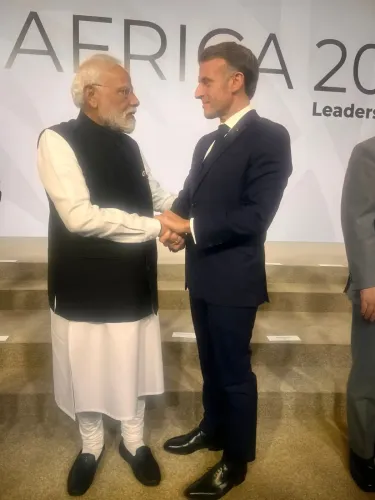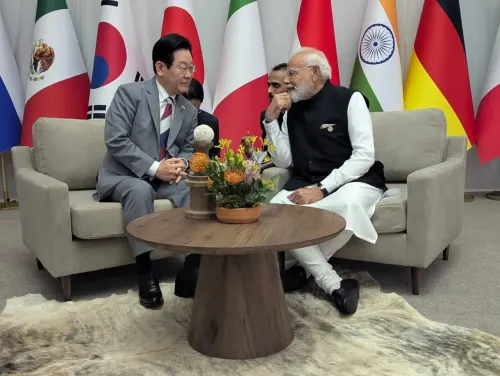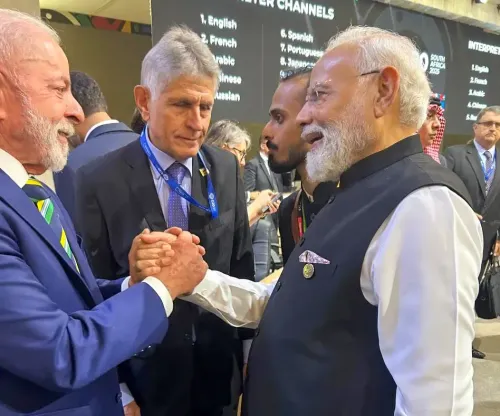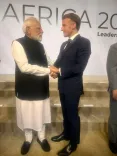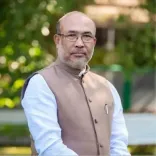Is Israel's Defence Minister Announcing Unprecedented Strikes on Iranian Regime Targets?
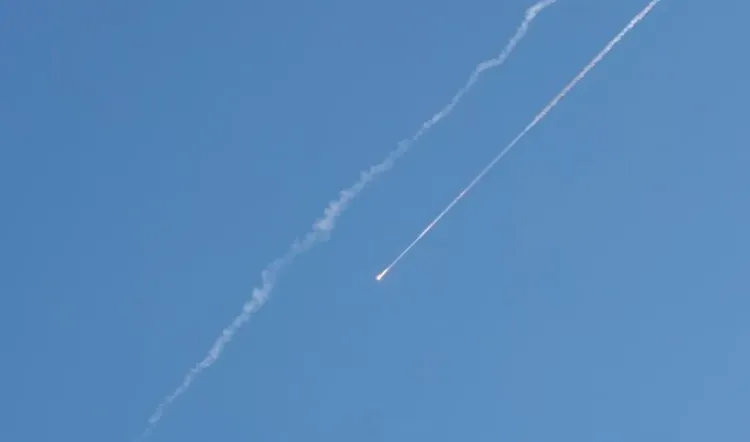
Synopsis
Key Takeaways
- IDF conducting unprecedented strikes in Tehran.
- Targets include Basij headquarters and Evin prison.
- Response to ongoing threats against Israel.
- Iran retaliates with missile strikes on Israel.
- Heightened tensions highlight risks for regional stability.
New Delhi, June 23 (NationPress) Israel's Defence Minister Israel Katz declared on Monday that the Israel Defence Forces (IDF) are currently conducting strikes with unprecedented intensity against regime targets and governmental suppression entities in the core of Tehran.
“Following the instructions of Prime Minister Benjamin Netanyahu and my own, the IDF is now engaging with unmatched force regime targets and government oppression entities in the center of Tehran, which includes the Basij headquarters, Evin prison for political detainees and regime adversaries, the ‘Israel Destruction’ clock in Palestine Square, the Revolutionary Guards’ internal security center, the ideology headquarters, and other regime entities,” Katz stated on X.
He further asserted, “For every bullet aimed at the Israeli homeland, the Iranian dictator will face repercussions. The assaults will persist with full vigor. We are committed to safeguarding the home front and overcoming the adversary until all wartime objectives are fulfilled.”
Concurrently, Iran's Supreme Leader Ayatollah Ali Khamenei issued a grave warning on Monday as his first response following US strikes on Iranian nuclear facilities.
“The Zionist enemy has made a grave error and committed a significant crime; it must face consequences, and it is currently being punished,” Khamenei expressed on X, labeling the assaults “a major crime.”
The US strikes followed Israeli operations on June 13 that targeted various sites in Iran, including nuclear and military locations, resulting in the deaths of high-ranking commanders and nuclear scientists.
In retaliation, Iran also executed missile and drone attacks on Israel.
Earlier that day, Israeli Prime Minister Benjamin Netanyahu reaffirmed the nation’s resolve to continue its military operations.
“Israel will maintain operations at full capacity in both Iran and Gaza,” he stated, adding, “We will not cease this historic endeavor until we reach our objectives.”

